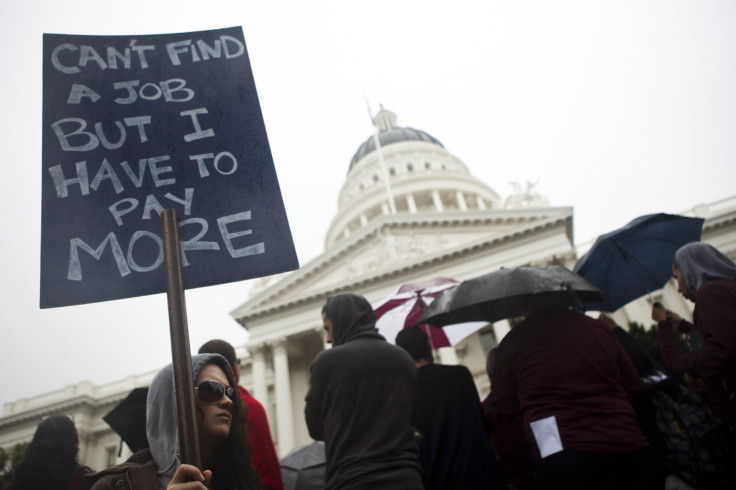Hillary Clinton Free College Plan, Student Debt Crisis Could Define 2016 Election

When President Barack Obama proposed his free community college plan in January, critics scoffed. That kind of costly measure would never get through the GOP-run Congress, they said. Maybe not, the White House responded, but they hoped the plan would start a conversation about the price of higher education.
Six months later, the student debt crisis has become a central talking point for Democratic leaders across the country. And political pundits predict affordable higher education could become the new universal healthcare in terms of how it might define the next presidential election.
The proposals aren't necessarily realistic, and in many cases, the details haven't been hammered out. But experts say that might not matter. At this stage in the campaign, the proposals are simply designed to get young voters interested and signal that college affordability will be a top priority for Democrats going into 2016. Republicans like New Jersey Gov. Chris Christie may be taking shots at these ideas, but they, too, will have to address the issue eventually, education and political leaders said.
"They are putting forward a theme that they want to carry through the election," said Terry Hartle, senior vice president of government and public affairs at the American Council on Education, an association of higher education institutions based in Washington. "You don't want to get bogged down in the details of how it is going to work."
Student debt has rapidly become one of Americans' top concerns as the cost of college has risen. Voters ages 18 to 49 rated "college expenses/loans" their top financial problem in a Gallup poll from last April.
In 2014, it cost about $18,943 annually for a student to attend a public college in his or her state. Tuition and fees increased by about 3 percent from 2013, making attending a public, in-state school overall three times more expensive than it was 30 years ago.
Students have turned to loans to keep up with the price hikes. The class of 2015 has the most debt in U.S. history, with each student graduating with an average of $35,051 in loans. The national total recently reached an all-time high of $1.2 trillion.
"It's become a very large problem very quickly," said Mark Huelsman, senior policy analyst at liberal public policy organization Demos in New York. "I'm optimistic we're going to see this have its moment."
Experts are already drawing comparisons between student debt and universal healthcare, which several presidential administrations tried to tackle before it took the spotlight during the 2008 election. Then, Democrats touted the successes of Massachusetts' 2006 healthcare reform just like they're now pointing to Tennessee's 2014 college promise plan that lets high schoolers get two years of free tuition at a local community or technical college.
Simply put, politicians realize student debt is a hot issue -- and an area where they can potentially win the votes of the notoriously fickle millennial generation. About 23 million young people voted in 2012, and by next year, they're expected to comprise more than a third of the electorate.
Obama's victories relied heavily on young voters, Hartle said, and the Democratic party will try to remobilize them for 2016. That's partly why candidates like Sanders are already playing up their student loan proposals. Even people not running for president, like Warren and Obama, are talking about it so voters know it's a party priority. "I can't think of any issue of more interest to young Americans than paying for college," he added.
If the Republicans hope to compete, they'll have to talk about college affordability, too, said David Bergeron, vice president for postsecondary education at the Center for American Progress, a policy institute in Washington. It'll likely take a while to see any federal laws passed, but the discussion alone is productive, Bergeron said.
"Having the conversation increases the likelihood that something will actually happen," he said.
© Copyright IBTimes 2024. All rights reserved.





















